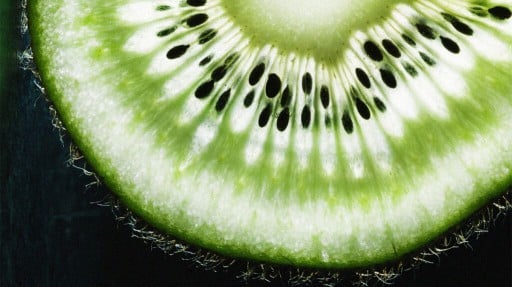
Diet influences aspects of physical and mental health, contributing to overall well-being.
Researchers are still seeking to understand what components of diet can have the most impact on mental health.
A recent study found that eating kiwi fruit helped boost mood within a few days among people with low vitamin C levels.
Following a healthy diet helps support quality of life, but researchers and nutrition experts are still seeking to understand the mechanisms that drive the connection between food and mood.
A recent study published in British Journal of Nutrition examined how kiwi and vitamin C impacted mood and how fast participants experienced mood improvements.
Results show that eating kiwifruit improves mood after 4 days, and the impact on vitality and mood was slightly stronger compared to study participants who received vitamin C supplements.
The findings point to the effects of vitamin C on mental health and that whole food sources may be the best way to get this nutrient.
What are the health benefits of kiwi?
Fruits are part of a healthful diet, and kiwifruit is one option that offers several.
For example, kiwifruit may help with gastrointestinal function and improve blood sugar and lipid levels. It contains fiber, potassium, and vitamin E, and fairly high levels of vitamin C.
is a critical nutrient that helps with immune system function and wound healing.
Prior studies suggest that vitamin C supplements and vitamin-C-rich fruits can help boost mood.
For the current study, researchers hypothesized that vitamin C could play a role in mood and healthy brain function. They were curious how fruit intake could potentially impact mental health over a period of time.
Is kiwifruit good for mental health?
This particular study analyzed data from a three-armed placebo-controlled trial. The participants were adults between 18 and 35 who had low plasma levels of vitamin C.
Researchers divided participants into three groups: One group received a daily vitamin C supplement, the second received two kiwifruit daily, and the third received a daily placebo tablet.
Researchers used smartphone surveys to collect data from participants, and participants had blood work done every 2 weeks.
They weren’t able to blind participants or researchers regarding the kiwifruit intervention. However, researchers and participants did not know who received the placebo versus vitamin C tablets until after the study’s completion.
Participants took their assigned intervention or placebo for four weeks and answered surveys every other day. The surveys collected data on several components, including:
energy and fatigue
mood
flourishing
sleep quality and quantity
physical activity levels
Based on their analysis, researchers found that participants consuming the kiwifruit saw mood and vitality improvement at around 4 days and improvement in flourishing at around day 14.
Mood improvements peaked for these participants between day 14 and day 16. Participants in the vitamin C supplement group saw mood improvements until around day 12.
“As part of this placebo-controlled nutrition trial, we used smartphone technology to survey mood across an 8-week period and found improvements in mood following introduction of a whole-food vitamin C product (Sungold kiwifruit) in as early as four days, then peaking around two weeks.
Our research programme suggests there is value in measuring real-time mood changes frequently in daily life across within intervention trials to understand patterns and timeframes of change. We were surprised that participants randomised to the whole-food condition (2 Sungold kiwifruit per day) showed improvements to mood in as early as four days into the intervention.”
The study points to the importance of incorporating vitamin C into a diet pattern and how this nutrient may benefit mental health. It also suggests the benefit may be most pronounced when obtained from whole food sources.
“This trial highlights a crucial point of difference between food-based vitamins and those from synthetic sources,” said non-study author and registered dietitian and nutritionist Rick Miller.
“They are not equivalent, and a ‘whole food-first’ approach should always be the first port of call to meet nutritional requirements and symptoms that could be related, such as mood.”
More research on the mental health effects of kiwi needed
Despite the promising findings supporting the benefits of kiwifruit consumption, the study does have some limitations.
First, it was observational, so it can’t prove that kiwi fruit causes mood boosts or other outcomes. Second, it relied on participant self-reporting, which doesn’t always guarantee accuracy.
The study was also conducted over 8 weeks and only included a relatively small number of adult participants in a specific age range.
The setup of the surveys may also have limited the findings. For example, researchers only included limited data from the profile of mood states rating scale in participant surveys, and researchers only sent participants surveys every other day.
Participants were also relatively psychologically healthy, so it’s unclear how beneficial the intervention would be for people who are more emotionally distressed.
Researchers also did not specify what time participants needed to consume supplements or kiwifruit, and future research could examine the impact of this timing on results.
Ethnic differences between the groups could also have impacted the results. Researchers also acknowledge that other components of kiwifruit besides vitamin C likely contributed to participants’ observed mental health benefits. Finally, researchers admit that there was some risk for positive response bias and that there was a non-randomized element when it came to assigning some clinics to the kiwifruit or tablet intervention.
Dr. Conner noted the following areas for continued research:
“We would like other scientists to test for timecourse patterns in mood following nutritional interventions. Replication is important in science. For whom are dietary interventions most helpful? Do some people benefit more vs. less from vitamin C? Are there demographic, psychological or environmental differences that predict variability in the mood benefits from vitamin C?”
Overall, the results still point to the benefits of kiwi and vitamin C for mental health.
“The strength of the findings for people with low vitamin C levels is impressive, and it was impressive to see kiwi separate from vitamin C tablets, which also demonstrates a non-response to placebo vitamin C tablets,” Dr. Alex Dimitriu, double board-certified psychiatrist and sleep medicine specialist and founder of Menlo Park Psychiatry & Sleep Medicine in California, told MNT. Dr. Dimitriu was not involved in the research.
“It may have been a good direction to add a non high in vitamin C fruit control, besides kiwi fruit. For anyone not eating enough citrus fruit or presumably low vitamin C levels, studies like this support a substantial benefit from a relatively risk and cost-free intervention of getting more vitamin C in their diet,” he added.
“Given the marked benefits of normal levels of vitamin C, this study underscores the importance of having a healthy amount of citrus[or] vitamin C in one’s diet. In our impatient world, the speed of these improvements is remarkable.”








